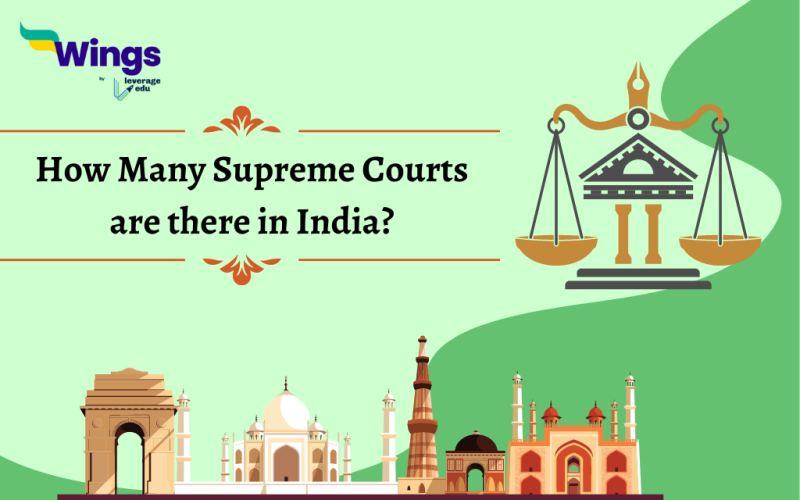India is a big nation and there is a myth concerning the Supreme Court. Are you curious and thinking of how many Supreme Courts are there in India? Well, there is a misconception surrounding it, but we will try to break the myth and answer it straight. In this blog, we will try to answer the question and learn about the functioning of the Supreme Court.
The Answer is Simple – One Supreme Court
There is only one Supreme Court in India which is located in New Delhi the capital of India. The Supreme Court is the highest judicial body in the country which was established in the year 1950. It is the final interpreter of the Constitution and oversees all the legal matters of the country. It serves as the guardian of justice and fundamental rights.
Structure of the Supreme Court of India
- Chief Justice of India – The Supreme Court of India is headed by the Chief Justice of India. The CJI is appointed by the President of India and holds office until the age of 65. Currently, the CJI of SC is Justice D.Y. Chandrachud.
- Other judges – The Supreme Court of India consists of 33 judges and 1 CJI. They are appointed by the President of India with the consultation of CJI and other senior judges.
- Collegium System – In the appointment and transfer of judges, the Supreme follows a collegium system. The system includes the CJI and other senior judges of SC. They recommend appointments and transfers of judges taking into account their legal reputation, expertise and seniority.
Also Read – Important Articles in Indian Constitution [Complete List]
Why only one Supreme Court is Important?
The Supreme Court of India plays the role of the highest institution of Justice, Having a single Supreme Court at the national level helps in ensuring consistency and uniformity in the decision-making process when it comes to law. A centralised court allows for the efficient resolution of complex legal issues and disputes. Here are some more reasons –
- Safeguards the Constitution – The power vested on the SC for Judicial review acts as a check on the executive and prevents misuse of power by any other court. It also extends the writs like habeas corpus, mandamus, etc.
- Landmark Judgements – The SC has passed some landmark judgements unanimously that have helped in the protection of rights and extend justice for all. Some examples are – RTE, RTI, Article 370, etc.
- Resolves Disputes – The SC acts as the final court of appeal in all legal matters. It resolves disputes between the Central Government and State Government, between different states and between individuals and government.
- Strengthening Democracy – By upholding the rule of law ensuring that everyone is subject to the same laws and holding the government accountable for its actions, the SC works as the third pillar of democracy.
Hierarchy of Systems of Courts
While SC is the umbrella of all other courts and is supreme from all the courts. You must also understand the web of courts that India follows –
- Supreme Court – The highest reigning court.
- High Courts – There are currently 25 High Courts in India out of which six courts have control over more than one State or Union Territories.
- District Courts – Present in each district and handle the civil and criminal cases within their jurisdiction.
- Subordinate Courts – These are lower courts like Magistrates courts or Junior Civil Judge Courts, etc.
Also Read – The Making of Indian Constitution [Constitutional Design]
What are the Functions and Jurisdiction of the Supreme Court of India?
There are certain functions and jurisdictions that only SC has. Some of them are –
- Original Jurisdictions
- Appellate Jurisdiction
- Advisory Function
In conclusion, India’s vast size and diverse population seek a strong and unified judicial system. The Supreme Court stands as the soul of India and a powerful symbol of justice and equality. We hope we were able to answer how many Supreme Courts are there in India and why is it important.
Relevant Blogs
For more information on such interesting topics, visit our trending events page and follow Leverage Edu.
 One app for all your study abroad needs
One app for all your study abroad needs













